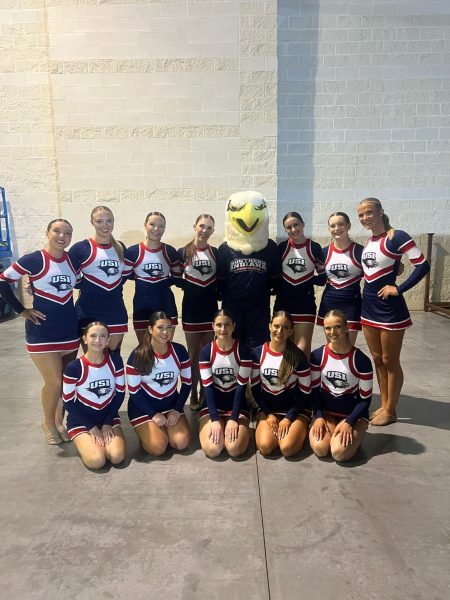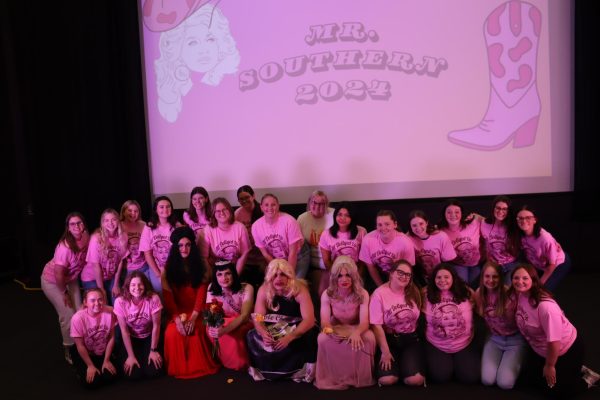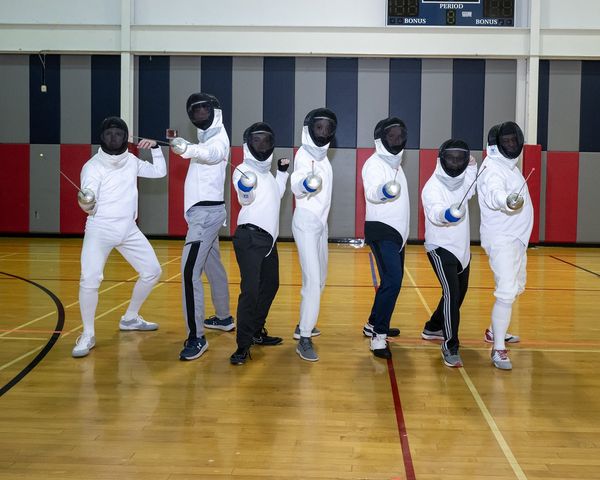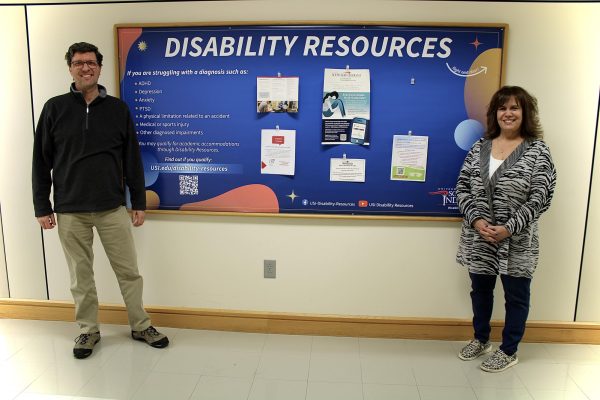‘All animals deserve a chance to find happiness’
Students save newborn kittens
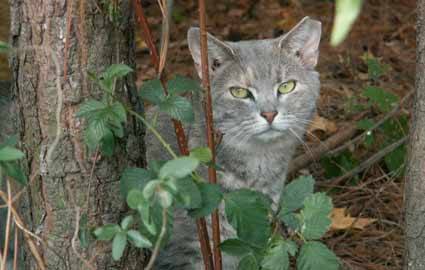
The university has been dealing with the presence of feral cats for many years, however, no policy change has been made.
Hannah Stone first saw the pregnant cat about three weeks after move in.
“I had been hearing about this pregnant cat that had been hanging out around the apartment buildings,” the freshmen art major said. “Eventually, I saw her, and she looked ready to pop.”
Back in 2014, a junior psychology major named Audrey Maxwell started a petition to encourage the university to adopt a Trap, Neuter, and Return (TNR) policy.
The policy would involve trapping the ferals cats on campus, getting them spayed or neutered and releasing them back to where they were captured. Maxwell’s proposal was approved by the SGA but shut down by the president.
As of 2018, the university’s policies on handling the feral cat population has remained unchanged.
Stone described the mother cat as a short-haired tabby with gray fur and black stripes. Stone had attempted to catch the cat before with a cat-carrier but was unsuccessful. She said the cat would run away before she could close the cage door on her.
Stone, along with sophomore nursing major Christina Zolezzi and another friend, decided to go and find the kittens after the mother gave birth. Stone said the kittens were found by one of the parking lots in the O’Daniel South area of the apartments. The three kittens were only a couple weeks old with open eyes and closed ears, hidden in tall grass. Stone said their mom was very protective.
“As soon as you took a step closer you knew that you were there because you could hear (the mother) hissing,” Stone said. “You couldn’t see her, but you could hear her.”
Stone had brought a cat carrier to try to catch the mother. But, when she came back after getting Zolezzi, the mother had run away. Even when they put the kittens in the carrier to coax the mother she never came back. Stone said she never saw the mother again.
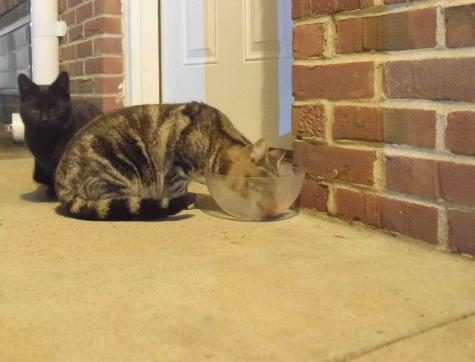
“I had to feed them every couple of hours,” Stone said. “I’m pretty sure I didn’t sleep. They were cute, but they were so stinking young and it took them a while to finally actually eat and stuff.”
The kittens included one female tabby and two solid gray males.
“The little (female) was the one that looked most like her mom,” Stone said. “There’s a bunch of black cats and most of them, to our knowledge that we could tell, is male. We’re convinced that one of those black cats was the daddy.”
Stone said the Humane Society wasn’t sure if they could take in the kittens due to population and fear of the kittens carrying diseases since they were feral. The Humane Society took them in to be cared for by a foster. Stone has not heard about the kittens since.
Stone said her first thought after giving up the kittens was a relief because she could finally take a nap after taking care of them all night.
“I was also relieved because I was like, ‘well, now there was somebody who actually knows what they’re doing more than I do,’” Stone said. “I knew how to keep them alive, but, you know, I didn’t have the means to really do anything with them.”
Stone couldn’t keep them at the apartments nor could she bring them to her home since there were already other cats there.
“I figured, ‘well, at the very least, they’ll go somewhere and they’ll have a way better chance of having a happier life than I could ever give them,’” Stone said. “I feel like they had a better chance at making it through than if they had just been with me.”
Stone said it was important to help the kittens because of how young they were and how many cats are already at USI.
“I’m sure the mama would have done a good job taking care of her babies and stuff,” Stone said. “But I think all animals deserve a chance to find happiness and I don’t know if they would have found happiness just living here in the woods.”
Zolezzi said she was relieved when they found the kittens because they could save them.
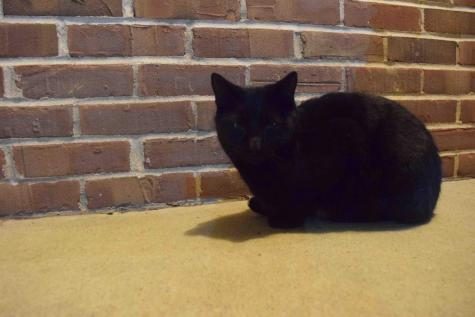 According to Zolezzi, there was another kitten from the same litter that has been found earlier. That kitten died after being taken to the veterinarian because of poor health. Because of this kitten being found, Zolezzi and the others knew where to look for the rest of the litter.
According to Zolezzi, there was another kitten from the same litter that has been found earlier. That kitten died after being taken to the veterinarian because of poor health. Because of this kitten being found, Zolezzi and the others knew where to look for the rest of the litter.
Zolezzi said the kittens were healthy and said they fed the kittens with 2 percent milk from their fingers and a warmed cup.
“Every three hours they had to be fed,” Zolezzi said. “It was really stressful, but it was rewarding.”
Stone said students should help out the cats as long as they know what they’re doing. She said cats carry a lot of diseases and someone can get hurt if they don’t know how to handle the situation.
“If you feel like this is something you should do, then go for it,” Stone said. “But make sure you know what you’re doing first. Otherwise, you’ll just hurt yourself and cause more problems for the animal you’re trying to save.”

